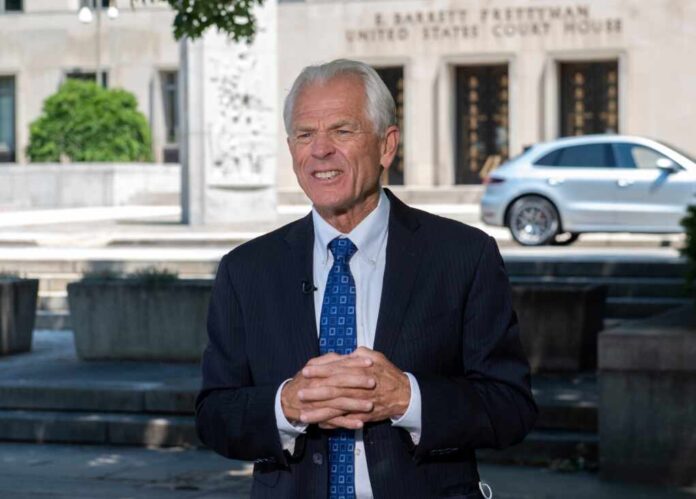
Peter Navarro, a former adviser to President Trump, has been ordered to report to federal prison by March 19. The order follows his conviction for failing to comply with a subpoena issued by the now-defunct Jan. 6 House Select Committee. Navarro, who served as a key White House aide, received a four-month sentence for contempt of Congress.
The conviction and subsequent sentence handed down to Navarro point out a troubling trend of politicized justice, as legal consequences are disproportionately severe for those associated with the Trump administration.
Navarro’s legal team has argued that the entire prosecution was marked by political motivations rather than legal merits. At the heart of Navarro’s defense was the belief that he was protected by executive privilege — a principle deeply rooted in the constitutional separation of powers and previously respected across partisan lines.
The Biden Admin is throwing Dr Peter Navarro behind bars next week
Peter Navarro was the #1 China trade hawk in the entire Trump admin, he was Trump's Director of Trade and Manufacturing, the CCP's top adversary and hated by their Wall St cronies
Are you paying attention yet?
— Jack Poso 🇺🇸 (@JackPosobiec) March 11, 2024
U.S. District Judge Amit Mehta decided to order Navarro to prison immediately despite his pending appeal. At trial, Navarro maintained as a defense to the contempt charge that he was acting under the direction of President Trump. The court dismissed that defense and potentially set a precedent weakening executive privilege as established in the Constitution in future administrations.
The Supreme Court is currently considering the applicability of the executive privilege defense to the Biden administration’s case against President Trump for alleged “insurrection.” A decision on that matter is expected by late June. It is expected to directly impact Navarro’s assertion of privilege in his case.
As Peter Navarro’s case heads to appeal, Judge Amit Mehta (Obama) nonetheless orders Navarro, 74, to report to a federal prison in Miami next week to begin serving a 4-month sentence for contempt of Congress.
Mehta loves throwing J6ers in prison… https://t.co/Cbt1iQPVg5
— Julie Kelly 🇺🇸 (@julie_kelly2) March 11, 2024
Navarro’s case also raises questions about equality before the law, as federal prosecutors declined to prosecute other Trump aides, such as former chief of staff Mark Meadows and adviser Dan Scavino, for similar charges of contempt of Congress. This selective prosecution suggests a pattern of inconsistency that undermines trust in the judicial system.
As Navarro prepares to report to prison, the implications of his case continue to unfold. Critics argue that the prosecution’s actions and the court’s decision represent an erosion of foundational constitutional principles, signaling a dangerous path toward a politically biased judiciary.
Navarro’s plight has become a symbol of what many see as a justice system increasingly used as a weapon against political adversaries. This case is not merely about the events of Jan. 6 or the actions of a single individual; it is about the integrity of the American legal system and the balance of power among the branches of government.














